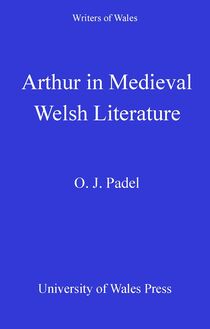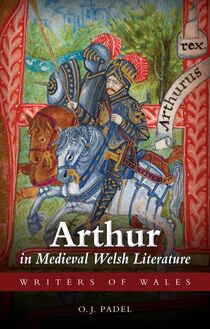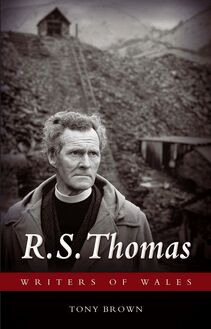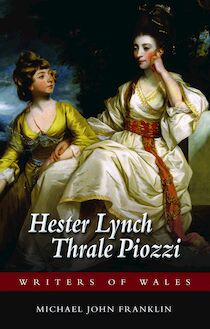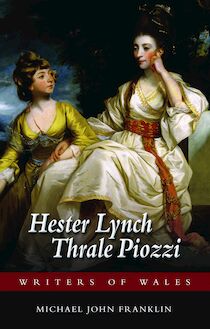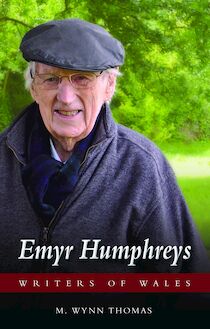-
 Univers
Univers
-
 Ebooks
Ebooks
-
 Livres audio
Livres audio
-
 Presse
Presse
-
 Podcasts
Podcasts
-
 BD
BD
-
 Documents
Documents
-
- Cours
- Révisions
- Ressources pédagogiques
- Sciences de l’éducation
- Manuels scolaires
- Langues
- Travaux de classe
- Annales de BEP
- Etudes supérieures
- Maternelle et primaire
- Fiches de lecture
- Orientation scolaire
- Méthodologie
- Corrigés de devoir
- Annales d’examens et concours
- Annales du bac
- Annales du brevet
- Rapports de stage
La lecture à portée de main
Vous pourrez modifier la taille du texte de cet ouvrage
Découvre YouScribe en t'inscrivant gratuitement
Je m'inscrisDécouvre YouScribe en t'inscrivant gratuitement
Je m'inscrisEn savoir plus
Vous pourrez modifier la taille du texte de cet ouvrage
En savoir plus

Description
Sujets
Informations
| Publié par | University of Wales Press |
| Date de parution | 15 septembre 2009 |
| Nombre de lectures | 0 |
| EAN13 | 9781783163779 |
| Langue | English |
Informations légales : prix de location à la page 0,0650€. Cette information est donnée uniquement à titre indicatif conformément à la législation en vigueur.
Extrait
Writers of Wales
R. S.Thomas
Editors:
Meic Stephens
R. Brinley Jones
Advisory board:
Jane Aaron
Dafydd Johnston
Writers of Wales
R. S.Thomas
Tony Brown
Tony Brown, 2006 Reprinted 2009 New edition 2013
British Library Cataloguing-in-Publication Data. A catalogue record for this book is available from the British Library.
ISBN 978-0-7083-2616-9 eISBN 978-1-78316-377-9
All rights reserved. No part of this book may be reproduced, stored in a retrieval system, or transmitted, in any form or by any means, electronic, mechanical, photocopying, recording or otherwise, without clearance from the University of Wales Press, 10 Columbus Walk, Brigantine Place, Cardiff, CF10 4UP.
www.uwp.co.uk
The right of Tony Brown to be identified as author of this work has Patents Act 1988.
For Nancy, Sara and Alys
There was a hope he was outside of, with no-one to ask him in [. . .]
R. S. Thomas, The Echoes Return Slow
Contents
Acknowledgements
Preface to the New Edition
Abbreviations
Chapter I From Holyhead to Manafon
Chapter II Eglwys-fach
Chapter III Aberdaron
Chapter IV Retirement, Protest and Unity
Notes
Select Bibliography
Acknowledgements
Conversations, over numerous years, about R. S. Thomas and his work, with fellow scholars, undergraduate and postgraduate students, and visitors to the R. S. Thomas Study Centre at University of Wales, Bangor, mean that my debts are many and varied. But in particular I am grateful for discussion in recent years with my Co-director at the Centre, Dr Jason Walford Davies, and with my friend and colleague, Professor M. Wynn Thomas (University of Wales Swansea), who is also the poet s literary executor. My thinking about Thomas s personality and his references to his own insecurity of identity has been focussed by conversation with Dr Barbara Prys-Williams, and my indebtedness to her work on The Echoes Return Slow will be evident in the text. Discussion with postgraduate students working in the field is perhaps the best possible way of keeping one s ideas sharp and thinking further; I have been fortunate to have had working with me at the Centre at Bangor some especially able students of R. S. Thomas s writing: Dr Fflur Dafydd, Daniel Westover and Sam Perry (University of Leicester). The poet s son, Mr Gwydion Thomas has been unfailingly supportive and I am especially grateful to him for permission to publish several photographs of his father, as well as permission to quote extensively from R. S. Thomas s writing and broadcasts. Dr T. Robin Chapman generously drew my attention to relevant material during his own research on Islwyn Ffowc Elis. I am grateful to colleagues at the University of Wales Press, especially Sarah Lewis, for their expertise - and for their patience in the over-long gestation of the present work. The series editor, Professor Meic Stephens, made many helpful suggestions on the text and saved me from a number of errors; those that remain are of course my own responsibility. Mrs Linda Jones, Research Co-ordinator in the Department of English at Bangor has, as ever, been indispensable in the preparation of text.
I am grateful to Mrs Eirlys Ffowc Elis for permission to quote from unpublished writing by her late husband, Islwyn Ffowc Elis; to the BBC in Cardiff and London for permission to quote from unpublished broadcasts by R. S. Thomas; to the late Mr Ian Cameron, a cousin of the poet, for permission to publish the photograph of R. S. and Elsi Thomas in 1940; to members of St Mary Magdelane s Church, Tallarn Green, for giving me a copy of the photograph of R. S. and Elsi Thomas taken when he was a curate there (and for a memorable evening talking about the poet in the little church where he once served).
Writing of R. S. Thomas Kunjana Thomas 2001 Passages from Residues Rhodri Thomas 2002
Preface to the New Edition
It is hard to believe that a dozen years have slipped by since R. S. Thomas s passing; perhaps even more difficult to believe that it is a hundred years since his birth, the son of a sometime mariner, at that time Commercial Traveller in Oils and Grease , in Cardiff and his Merthyr-bred wife. Time would have its work cut out in smoothing the birth-marks in the flesh. The marks in the spirit would not heal ( The Echoes Return Slow ).
The man left us, and usually after a writer s death his/her crical stock declines under the critical re-examination that comes when the obituarists have fallen silent. In fact quite the opposite seems to have happened in the years since RS s death. The attention that the poetry has received in the last decade has revealed new depths, even more intricate shades of meaning; indeed in many respects we are still getting to grips with the later poetry and, in doing so, the pattern of the earlier work has itself in subtlety shifted. In various ways critical reading of R. S. Thomas s poetry has moved into a new phase, now that man, that hair shirt on our national body as Tony Conran memorably saw him, has gone. New aspects of his autobiography have been explored, in particular the profound and remarkable relationship with his first wife, the artist Elsi Eldridge, whose own work has finally received more attention and appreciation than it ever did in her lifetime. The examination of R. S. Thomas s theology has moved into a new and more sophisticated phase, and the actual techniques of the work as poetry are receiving new and extensive scrutiny. And, above all, new poems, uncollected and in manuscript, have come to light.
What is also striking is how much of this critical attention is coming not only from outside Wales but outside the UK, from the USA and even further afield. Indeed if visitors to, and communication received by, the R. S. Thomas Study Centre at Bangor may be used as a measure, R. S. Thomas is unarguably a poet of genuinely international standing. Recent overseas visitors have come from, for instance, the USA, Poland and China; editions of Thomas s work are about to appear in Chinese (the Collected Poems to add to the Selected ) and Korean, joining the translations that now exist in all of the major European languages as well as, perhaps unsurprisingly, some minority languages.
All of which is to point to the fact that, while even at his death R. S. Thomas was not simply the poet of the bald Welsh hills which so many of the London obituaries still saw him primarily as being, the universal resonance of Thomas s poetry is being heard far beyond his native land, calling indeed not only to the anguish and uncertainty of our own time but to something fundamental in the human condition - and only major poets, in any language, do that.
Tony Brown Bangor, 2013
Abbreviations SF The Stones of the Field (1946) AL An Acre of Land (1952) SYT Song at the Year s Turning (1955) PS Poetry for Supper (1958) T Tares (1961) BT The Bread of Truth (1958) P Piet (1958) NHBF Not That He Brought Flowers (1968) YO Young and Old (1972) LS Laboratories of the Spirit (1975) WI The Way of It (1977) F Frequencies (1978) BHN Between Here and Now (1981) LP Later Poems 1972-1982 (1983) EA Experimenting with an Amen (1986) WA Welsh Airs (1987) ERS The Echoes Return Slow (1988) C Counterpoint (1990) MHT Mass for Hard Times (1992) NTF No Truce with the Furies (1995) R Residue s, ed. M. Wynn Thomas (2002) SP R. S. Thomas: Selected Prose , ed. Sandra Anstey (rev. ed., 1995) A Autobiographies , ed. Jason Walford Davies (1997) GH The Great Hunger , Collected Poems , Patrick Kavanagh (1964) MS Miraculous Simplicity: Essays on R. S. Thomas , ed. William V. Davis (1993) PD The Page s Drift: R. S. Thomas at Eighty , ed. M. Wynn Thomas (1993)
Chapter 1
From Holyhead to Manafon
Those Others
A gofid gwerin gyfan
Yn fy nghri fel taerni t n
Dewi Emrys
I have looked long at this land, Trying to understand My place in it-why, With each fertile country So free of its room, This was the cramped womb At last took me in From the void of unbeing.
Hate takes a long time To grow in, and mine Has increased from birth; Not for the brute earth That is strong here and clean And plain in its meaning As none of the books are That tell but of the war
Of heart and head, leaving The wild birds to sing The best songs; I find This hate s for my own kind, For men of the Welsh race Who brood with dark face Over their thin navel To learn what to sell;
Yet not for them all either, There are still those other Castaways on a sea Of grass, who call to me, Clinging to their doomed farms; Their hearts though rough are warm And firm, and their slow wake Through time bleeds for our sake. ( T 31-2)
Those Others was published in 1961, by which time R. S. Thomas had left Manafon, the first parish where he had served as priest, and left the hills of Montgomeryshire, the landscape of the poems which had established his reputation as a poet in the 1950s. He was now vicar at St Michael s, Eglwys-fach, not far from Aberystwyth. In many ways it is a poem in which the poet takes stock of his situation. It anticipates the political polarities of much of the work which was to follow in the 1960s: Thomas s vigorous distaste, amounting to hatred, for those who were willing to market Wales as a commodity for tourists, to sell Wales, its natural beauty, its history and its culture to tourists from England, and his assertion of the need for stubborn resistance to the intrusive world of consumerism and market values which he saw such tourism as representing. For an emblem of that resistance, of another, truer way of life, the poet looks back, as he does so often in the poetry of the 1960s, to the beleaguered hill farmers of Montgomeryshire, the last remnants of what Thomas sees as an older, truer way of life, rooted in the rhythms of Welsh rural life.
The epigraph from Dewi Emrys, added to the poem when it was collected in Tares (1961), focuses the cultural struggle that the poem engages: With the pain of a whole people / In my cry like the fervency of fire
-
 Univers
Univers
-
 Ebooks
Ebooks
-
 Livres audio
Livres audio
-
 Presse
Presse
-
 Podcasts
Podcasts
-
 BD
BD
-
 Documents
Documents
-
Jeunesse
-
Littérature
-
Ressources professionnelles
-
Santé et bien-être
-
Savoirs
-
Education
-
Loisirs et hobbies
-
Art, musique et cinéma
-
Actualité et débat de société
-
Jeunesse
-
Littérature
-
Ressources professionnelles
-
Santé et bien-être
-
Savoirs
-
Education
-
Loisirs et hobbies
-
Art, musique et cinéma
-
Actualité et débat de société
-
Actualités
-
Lifestyle
-
Presse jeunesse
-
Presse professionnelle
-
Pratique
-
Presse sportive
-
Presse internationale
-
Culture & Médias
-
Action et Aventures
-
Science-fiction et Fantasy
-
Société
-
Jeunesse
-
Littérature
-
Ressources professionnelles
-
Santé et bien-être
-
Savoirs
-
Education
-
Loisirs et hobbies
-
Art, musique et cinéma
-
Actualité et débat de société
- Cours
- Révisions
- Ressources pédagogiques
- Sciences de l’éducation
- Manuels scolaires
- Langues
- Travaux de classe
- Annales de BEP
- Etudes supérieures
- Maternelle et primaire
- Fiches de lecture
- Orientation scolaire
- Méthodologie
- Corrigés de devoir
- Annales d’examens et concours
- Annales du bac
- Annales du brevet
- Rapports de stage



